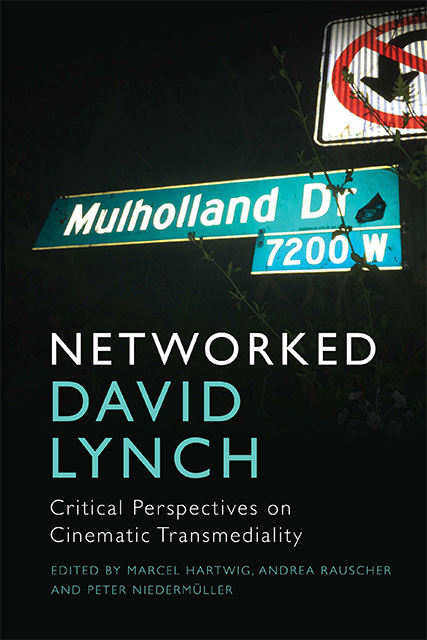Book contents
- Frontmatter
- Contents
- List of Figures
- Notes on Contributors
- Introduction: Entering Lynchtown
- Part I Approaching Intertexts
- Part II Twin Peaks as Transmedia Network
- Part III David Lynch's Transmedia Aesthetics
- Part IV Videographic Criticism of David Lynch’s Cinematic Work
- Conclusion: Leaving Lynchtown
- Index
Chapter 3 - Singing the Body Electric: Myth and Electricity as Both Sides of a Metaphorical Coin in Twin Peaks: The Return
Published online by Cambridge University Press: 19 October 2023
- Frontmatter
- Contents
- List of Figures
- Notes on Contributors
- Introduction: Entering Lynchtown
- Part I Approaching Intertexts
- Part II Twin Peaks as Transmedia Network
- Part III David Lynch's Transmedia Aesthetics
- Part IV Videographic Criticism of David Lynch’s Cinematic Work
- Conclusion: Leaving Lynchtown
- Index
Summary
Laura Palmer's ominous announcement at the end of the original two seasons of Twin Peaks (1990–1, Mark Frost and David Lynch) that she would see Agent Dale Cooper again in 25 years was eventually resolved both at the level of narration as well as in terms of distribution – the third season was broadcast approximately, but not quite, 25 years later. The third season, ostensibly called Twin Peaks: The Return for reasons of differentiation, follows on from the second season's cliffhanger and, while picking up on a number of narrative elements from the previous series, at times differs considerably in aesthetics. Twin Peaks was once famous for its bold innovations, paradigmatic of the ‘second Golden Age of Television’ (Thompson, see Dunleavy), and associated with postmodern television (Weinstock 9f.; Storey 198ff.). It provides for a vast area of research, too, as witnessed by the unusual number of anthologies devoted to this one series (see for example Sanna 2019, Weinstock and Spooner 2016, Frank and Schleich 2020). Neither Twin Peaks nor David Lynch's work in general have been particularly famous for their narrative achievements, however. Granted, the elliptic nature of many of their plotlines has resulted in a serious number of what I call ‘fansplainations’ online. Approaches towards Lynch and Twin Peaks from the camp of the humanities tend to emphasise their aesthetic and symbolic potential, and they do so with good reason. One particular metaphor that lends itself to self-referential lectures as well as attempts at explaining the myths at the heart of that small fictional border town we have all come to love and fear is that of electricity.
Electricity lends itself very well as a metaphor for the various mediarelated paths an artistic filmmaker may explore. Elements of circuitry, charge, voltage or power can easily be employed as metaphors, standing in for cyclical proceedings, possession, inner turmoil and supernatural abilities, to name but a few examples. Electricity harkens back to myth, too, as a natural phenomenon – the highest Greek authority when it came to their pantheon was always Zeus, wielder of lightning. And the most potent metaphor of them all, water as a (re)source and precondition of life, is reflected in the denomination of electric currents while actual currents may be exploited to harvest electricity.
- Type
- Chapter
- Information
- Networked David LynchCritical Perspectives on Cinematic Transmediality, pp. 47 - 60Publisher: Edinburgh University PressPrint publication year: 2023



